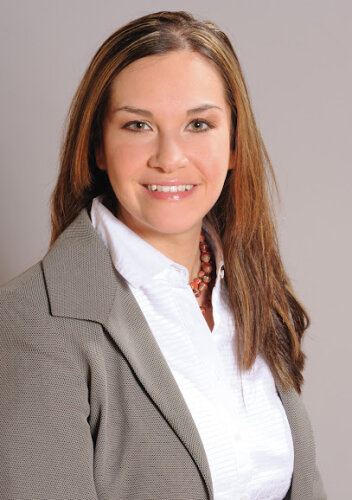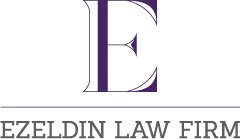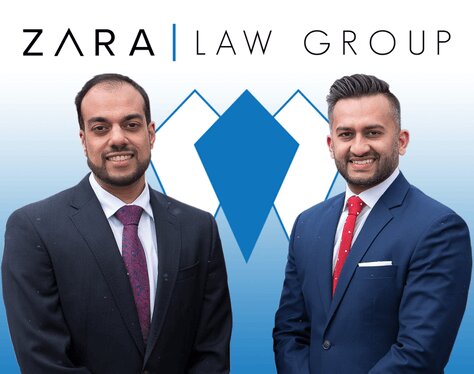Best Land Use & Zoning Lawyers in Illinois
Share your needs with us, get contacted by law firms.
Free. Takes 2 min.
Free Guide to Hiring a Real Estate Lawyer
Or refine your search by selecting a city:
List of the best lawyers in Illinois, United States
About Land Use & Zoning Law in Illinois, United States
Land use and zoning law in Illinois governs how property within the state can be used and developed. These laws are set by local governments such as cities, villages, and counties, and are designed to regulate land development, protect property values, manage growth, and promote the health, safety, and welfare of communities. Zoning ordinances typically divide a jurisdiction into different districts, such as residential, commercial, industrial, or agricultural. Each district has specific rules about what can be built and how land can be used. Land use laws also address issues such as building heights, lot sizes, setbacks, density, and environmental impacts. Understanding these rules is essential for anyone planning to buy, sell, or develop property in Illinois.
Why You May Need a Lawyer
There are many situations where individuals, businesses, or developers might need legal assistance with land use and zoning matters in Illinois. Common scenarios include:
- Seeking a zoning change or variance to use property in a way not currently permitted by local ordinances
- Challenging or defending against zoning enforcement actions by local authorities
- Appealing adverse decisions made by local zoning boards or planning commissions
- Understanding how local regulations impact property rights or development plans
- Negotiating land use agreements or resolving disputes with neighbors over easements or boundaries
- Protecting property interests during local government planning, annexation, or eminent domain proceedings
- Addressing environmental restrictions, subdivision regulations, or historic preservation requirements
In these cases, a lawyer can help clarify the law, represent you in hearings or negotiations, prepare and file necessary applications or appeals, and protect your interests against complex regulations or legal disputes.
Local Laws Overview
Illinois land use and zoning laws are primarily set at the local level. Each municipality or county adopts its own zoning ordinance, comprehensive plan, and land development codes. Key aspects you should be aware of include:
- Zoning Ordinances: These laws divide communities into different zones (such as residential, business, and industrial), detailing what uses are allowed in each zone.
- Comprehensive Plans: Many Illinois communities have long-term guides for growth, infrastructure, and land preservation. These plans inform zoning updates and land use decisions.
- Variances and Special Use Permits: If your project does not conform to existing rules, you may request a variance or special permit, typically requiring public hearings and approval by a zoning board.
- Subdivisions and Land Development: Regulations often address how land can be divided, the installation of streets and utilities, and how new developments impact surrounding areas.
- Historic Preservation and Environmental Controls: Certain areas have special rules protecting historic sites, wetlands, floodplains, and other sensitive features.
- Appeals Process: If you disagree with a zoning decision, Illinois law usually allows for an administrative appeal before a local board of appeals and potentially judicial review in court.
It is important to consult the specific laws of your city, village, or county, as rules can vary significantly across Illinois.
Frequently Asked Questions
What is zoning?
Zoning is a system of laws that divides land into different areas or districts, each with its own set of permitted uses and development standards, such as residential, commercial, industrial, or agricultural.
How do I find out the zoning designation for my property?
You can usually find your property’s zoning designation by checking with your local city hall, county office, or online through your municipality’s zoning map or planning department.
Can I change the zoning of my property?
Yes, but you typically must apply for a zoning change or map amendment. This process often involves public hearings and approval from the local zoning board or city council.
What is a zoning variance?
A zoning variance is an exception granted by local authorities that allows a property owner to use their land in a way that does not fully comply with the current zoning regulations, often due to unique hardship or special circumstances.
Can neighbors oppose my zoning request?
Yes, neighbors and community members are often notified and may attend public hearings to support or oppose zoning requests, variances, or special use permits.
What happens if I violate zoning laws?
Violating zoning laws can result in fines, orders to correct or remove the violation, or even legal action by local authorities.
How are land use disputes resolved?
Disputes can sometimes be resolved through negotiation or mediation, but often require hearings before zoning boards or litigation in court.
Do environmental laws affect land use and zoning?
Yes, Illinois land use and zoning laws often intersect with environmental regulations, particularly regarding wetlands, floodplains, soil erosion, and natural resource protection.
What is a nonconforming use?
A nonconforming use is a property use that was legally established under previous zoning rules but is no longer permitted under current zoning. Such uses are often allowed to continue but may have restrictions on expansion or modification.
When should I consult a lawyer for land use or zoning issues?
You should consult a lawyer if you are planning a significant property development, seeking a zoning change or variance, facing zoning enforcement actions, or involved in land use disputes.
Additional Resources
If you need more information or assistance, consider the following resources:
- Local city, village, or county zoning and planning departments
- Illinois Department of Commerce and Economic Opportunity
- Illinois Department of Natural Resources, for environmental and conservation issues
- Metropolitan Planning Council, for research and policy guidance
- Illinois State Bar Association, for lawyer referrals specializing in land use and zoning
- Chicago Metropolitan Agency for Planning, for regional planning initiatives and resources
Next Steps
If you require legal assistance with a land use or zoning matter in Illinois, follow these actionable steps:
- Gather any documents related to your property, such as deeds, surveys, and past communications with local authorities
- Contact your local zoning or planning department to understand applicable regulations and procedures
- Consult with a qualified Illinois land use and zoning attorney who can evaluate your situation and outline your options
- Prepare questions for your attorney regarding deadlines, required permits, fees, and the likelihood of success for your project or defense
- Follow your lawyer’s advice on how to proceed, including submitting applications, attending hearings, or pursuing appeals if necessary
Navigating land use and zoning laws can be complex, but with the right information and professional guidance, you can protect your property interests and achieve your development goals in Illinois.
Lawzana helps you find the best lawyers and law firms in Illinois through a curated and pre-screened list of qualified legal professionals. Our platform offers rankings and detailed profiles of attorneys and law firms, allowing you to compare based on practice areas, including Land Use & Zoning, experience, and client feedback.
Each profile includes a description of the firm's areas of practice, client reviews, team members and partners, year of establishment, spoken languages, office locations, contact information, social media presence, and any published articles or resources. Most firms on our platform speak English and are experienced in both local and international legal matters.
Get a quote from top-rated law firms in Illinois, United States — quickly, securely, and without unnecessary hassle.
Disclaimer:
The information provided on this page is for general informational purposes only and does not constitute legal advice. While we strive to ensure the accuracy and relevance of the content, legal information may change over time, and interpretations of the law can vary. You should always consult with a qualified legal professional for advice specific to your situation.
We disclaim all liability for actions taken or not taken based on the content of this page. If you believe any information is incorrect or outdated, please contact us, and we will review and update it where appropriate.
Browse land use & zoning law firms by city in Illinois
Refine your search by selecting a city.

















